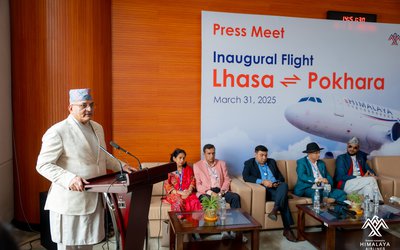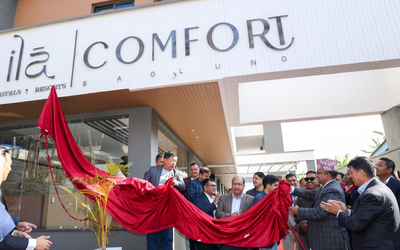More on Tourism






It’s dark when I hail a taxi on the outskirts of Thamel, and I say in my best Nepali: “I’m going to Balaju – how much?”
He wants 400. I say 200. He says 300. I walk away. He yells out, “Okay, okay – 250!” And I hop in.
As we begin our drive, my driver keeps repeating the Nepali word for ‘two hundred and fifty rupees’, and I repeat it after him because although we had haggled using fingers and English, I had not said the amount in Nepali. I chastise myself for not using the Nepali numbers, which I do know.
“I don’t speak English,” my driver announces to me in Nepali, via the rear vision mirror.
“That’s okay!” I answer. I begin to chat in Nepali to him as best I can. He asks me about Australia, the government, my family, my family member’s jobs, my religion and my work in Nepal. He is patient – albeit very blunt – but he speaks to me with care. He does not rush through his sentences, and chooses verbs and vocabulary that there is a chance I might know.
I have always enjoyed my taxi rides in Nepal, because I see them as an opportunity for an impromptu Nepali lesson. While I have the poor drivers trapped, I force them to listen to me string strange sentences together over the top of my phrase book. Most drivers find some amusement in these little interludes (I have quickly learnt how to answer my age and whether I am married!), and so often I learn more new words and phrases in these ten minutes, than I might in a few days.
We are in Nepal. Travellers should at least try to speak the language of the people here. I absolutely appreciate the amount of English that an average Nepali person can speak, as it makes shopping and sightseeing much easier. However, those Nepali who do not speak English do not deserve to have English barked at them or have a rude traveller become angry because they do not understand English. I recently felt great pride when one driver commented that Australians always try to speak Nepali, and I also received a discount on a pair of pants because I had asked the Thamel vendor the price in Nepali. Even just a few simple words (other than Namaste) can make your Nepali interlocutor extremely happy, that you have at least tried to speak Nepali, and not just assumed that they could converse with you your native tongue.
At the end of my taxi ride, I gave the driver 300 Rupees.
“Thank you for the Nepali lesson,” I said in English.
I don’t think he understood, but it didn’t matter.






